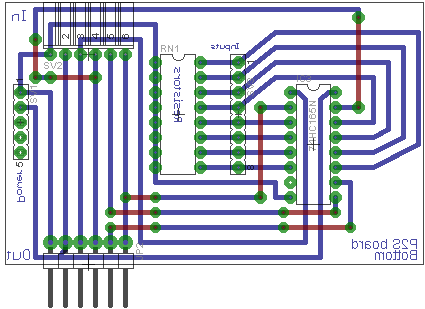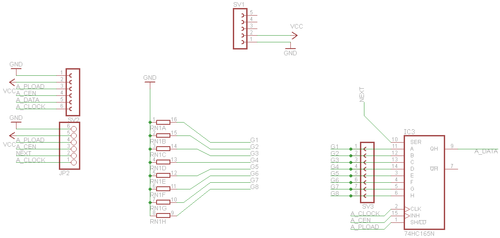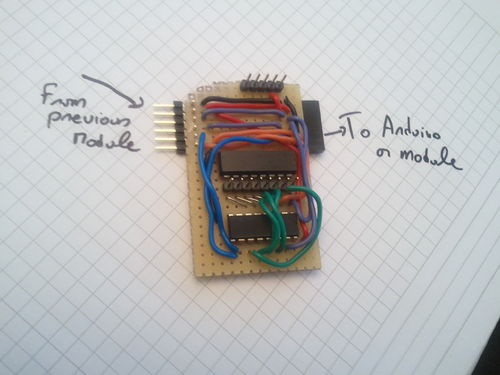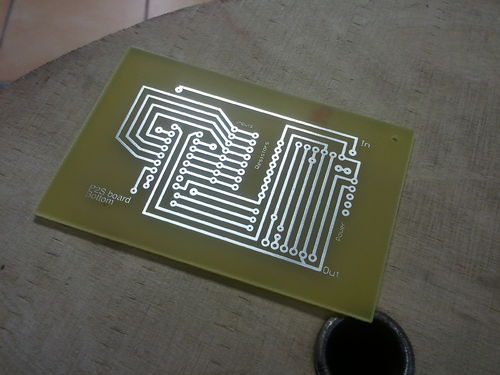Difference between revisions of "Projets:Perso:2012:StickArcade"
From Electrolab
| Line 25: | Line 25: | ||
==Input Multiplexing== | ==Input Multiplexing== | ||
Status : In Progress | Status : In Progress | ||
| + | The first module has been soldered and tested | ||
| + | * Module is working | ||
| + | * Modules are daisy chain-able | ||
| + | |||
| + | Toggling an input on is made by connecting +5v to an input pin. | ||
| + | |||
The multiplexing part is designed to be modular. | The multiplexing part is designed to be modular. | ||
Revision as of 14:00, 2 March 2012
| Stick Arcade 2 Players (For Mame) | |
|---|---|
| Auteur | Jnat |
| Date de proposition | 20/02/2012 |
| Tags du projet | Arcade;mame;usbhid;arduino;shift register; |
| Lieu d'utilisation final | @Work/Home |
| Utilisateur final | Gamers! |
| Type de projet
Projet personnel de Jnat | |
|
Overview
This project is about making a working, robust but "cheap" arcade stick. The stick is to be plugged in USB to a computer in order to play Mame arcade emulator or other games.
This project is made of 3 parts:
- Input multiplexing modules : making it possible for a simple arduino or Atmega chip to hold 30+ almost simultaneous inputs from players
- USB HID Module : The device will create 2 gamepad HID and a keyboard HID on host computer
- Stick body : mainly wood/metalworking in order to get a sturdy case (the arcade stick has to be strong and durable)
Input Multiplexing
Status : In Progress The first module has been soldered and tested
- Module is working
- Modules are daisy chain-able
Toggling an input on is made by connecting +5v to an input pin.
The multiplexing part is designed to be modular.
- Each board is based on a 74hc165N PISO shift register.
- These chips can be daisy chained giving a good opportunity to think about scalability.
- A module handles 8 inputs and uses 4 wires of the arduino (+ power and ground).
USB HID
Todo




